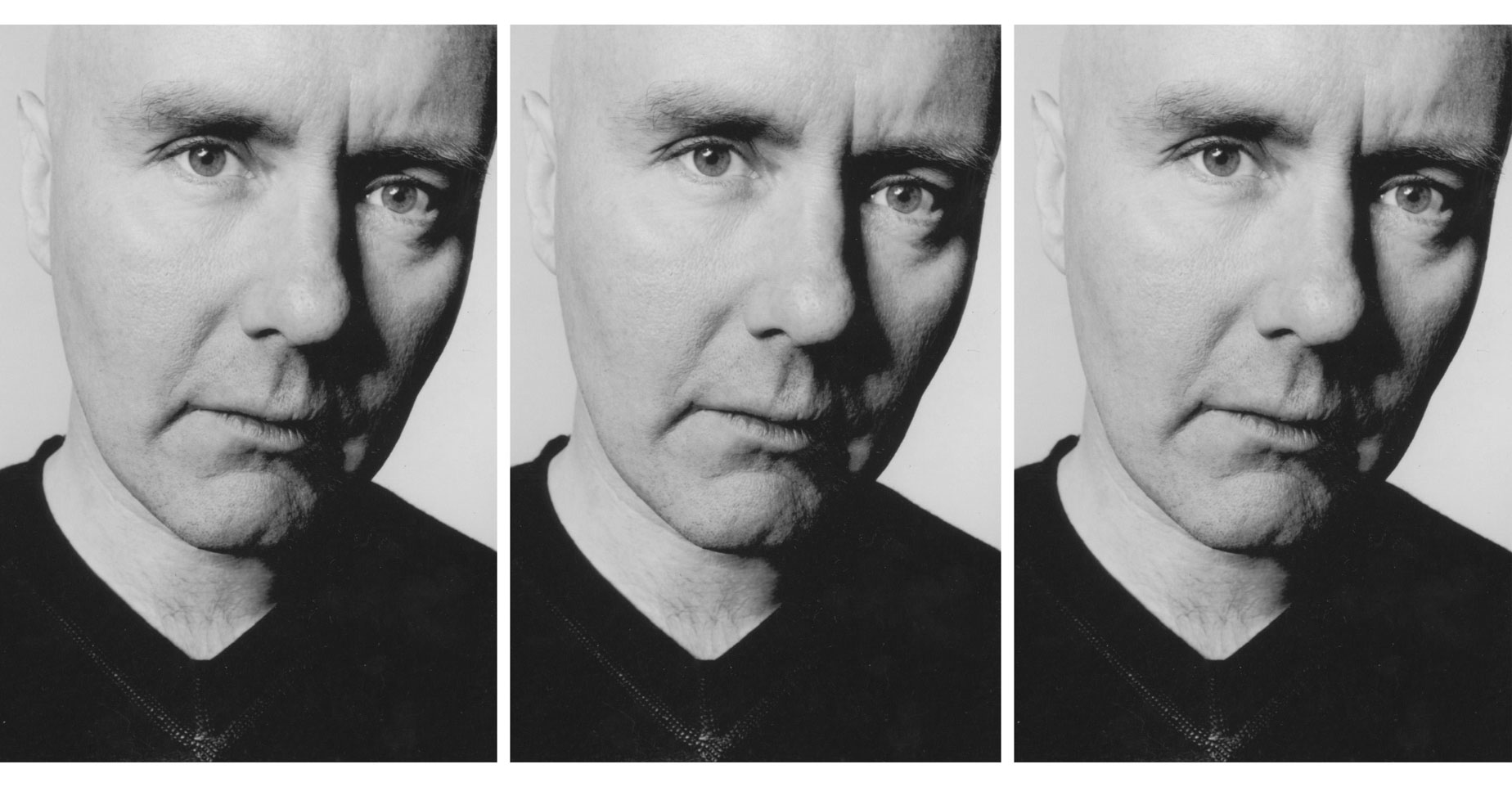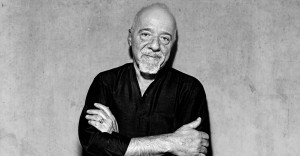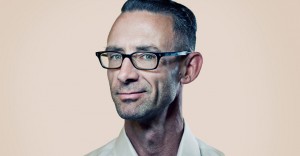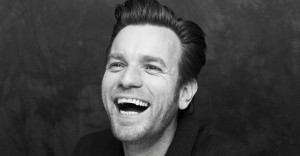Mr. Welsh, how did your upbringing in working class Scotland shape you as a writer?
It’s very difficult to be objective about yourself and your own circumstances, but one thing I do know about is that I grew up surrounded by storytellers. Everybody in my family were great storytellers. My dad and his brothers would just go on and on, they could tell amazing stories. I think it was something to do with the Celtic, oral storytelling tradition. People very much had that propensity towards telling tales. When I got older, I started going to the pubs and I just loved it.
To hear people tell their stories in the pubs?
Yeah, you’d go out and have a mad night and then you’d sit in the pub all day Sunday just talking about what you’d done at the weekend. These were some of the best days. Actually, I think the main thing that informed me was that… It is about that sense of community. Stories are important. I learned so much about the other generations by listening to people tell these stories, listening to parents and grandparents, aunts, uncles tell me about what had gone on.
How would things have turned out had you gone to a prestigious school and studied literature?
I would’ve probably been a very different kind of writer. I would have been more aware that I was standing on the shoulders of these giants. But because my orientation at first was very much an aural one, I was very interested in music, I think I was trying to kind of vent with that and be part of that community and culture. I didn’t consciously reject the great writers of our time but I don’t reference them in such a way that I would’ve done had I come from a more middle-class background.
What is more important as a writer: life experience or writing experience?
I think you’ve got to draw a balance between the two. To be a good writer, you have to be a good reader, you have to be interested in literature, you have to be interested in some of the great classic books, you have to constantly enjoy books and enjoy the work of it. You really do. But you’ve also got to be prepared to get out and do stuff and look around and engage with people. You’ve got to engage your senses. You live your life, and that way you can bring something new to the table, because otherwise you’re just a compiler or an editor of other people’s experiences.
I would have thought that you put more emphasis on experience judging from your books.
They go hand in hand together. I remember one pal said to me, around the time that I did Trainspotting, he said to me, “You stole my fucking book!” He’d been a junkie for years, longer than I had, but I was the one that wrote the book, you see? You’ve got to actually do it. You’ve got to actually sit there and do it, it can’t just be about the experience. Lots of people have fantastic experiences in life, but don’t have any inclination to put pen to paper.
The idea isn’t enough.
Exactly. The idea is not enough. And the most annoying thing for me as a writer is that people will come up to me and say, “Hey, I’ve got a great idea for a book. I’m not a writer, but I’ve got a great story.” (Laughs) It’s a generous thing for people to say, but I say to them, “Look. I’ve got loads of fucking stories. I’ve got a fucking warehouse full of ideas.” It’s never the ideas that are the problem for me. It’s sitting down and writing about them. That’s always been the difficult thing for me to do.
There’s a program that’s mentioned in your newest book Sex Lives where people have to write three pages in stream-of-consciousness every day. Is that something that you do to initiate your creative process?
No! No, it’s not at all. I don’t use them, but I love these kinds of things, these self-help, self-improvement things. I love the culture around them. I love the idea that you can’t just sit down and write a good book, you have to go through a fucking program. Of course, if it works for you, do it – I don’t meant to criticize or laugh at anyone – I just find it quite amusing. These people that just move on to the next program, the next diet. That’s the kind of consumer society we live in. We’re always looking for the next product that’s going to change your life instead of just going out and changing your life.
How much are your books based on your own experiences?
Your earlier books are always somewhat autobiographical, more so than your later ones. Skagboys and Trainspotting particularly have a lot of me in them. The two central characters in my last book are two American female characters in their thirties, but my wife read it and said, “You are these two characters!” (Laughs) In some ways your characters are snapshots of what you’re going through at the time, but some days you’re surprised as well.
By the shocking things your characters end up doing?
Yes, but if you try and shock, you never really do. Everything that you do in writing has to come out of your characters. I like to get into these characters that are polluted by their situations. In Trainspotting Renton is in a really bad place in his life, he’s trying to get off heroin… You meet him when he’s in a very bad place, and those bad circumstances lend themselves to drama. Bruce Robertson in Filth, you can see that he had a different life before he had that mental breakdown. These things are very constructive to me and they are basically about failure, and how we fail as human beings.
You are interested in failure?
Failure’s just more interesting. Success only comes in one form. It doesn’t teach you anything. Failure kind of comes in all sorts of ways, and teaches you all sorts of things. You learn by failing. Maybe it’s just the Scottish way of thinking but even when I’ve done something that’s a massive success, I can always tease bits of failure out of it. That’s often what life is about, is failure. The ultimate failure is that we get old and die.
That’s morbid.
Maybe, but the other failures that we have in some way kind of foreshadow that. They tell us about the human condition. For me, when you’re looking at this kind of misery and depravation, in some kind of de facto way you’re also putting the beauty of life in focus.
Where have you failed in your life?
I failed at a lot of things – I failed at being a musician, I failed at expressing myself artistically in any other way. That’s why I said that I was going to write a novel and I gave myself 18 months to do it. I told myself, “I don’t care what it ends up like, I’m going to finish the bastard.”
You’ve since said that figuring out what you wanted to do with your life gave you the kind of buzz you were looking for when you used to do heroin.
Yeah, I’ve got to a point where I really enjoy what I’m doing. I enjoy going out, meeting people, but I’m not a fucked up menace anymore. Recently I met Andrew Innes from Primal Scream and we’re having a cup o’ tea, it’s a beautiful day out, we’re enjoying it, chatting with people who come out to the café, the birds are singing. And normally in that situation we’d go straight to the pub – but we had no inclination to do that. It’s kind of like, we’ve been fucked up for so long that sobriety is actually the new getting fucked up.
Is that refreshing?
It is, it really is. It’s like a weight is lifted. When you get older you don’t really intoxicate in the way that you used to. You don’t really intoxicate in a euphoric way because you’ve come to experience it so many times that emotions don’t present themselves in the same way. The intoxication level sort of falls. I think when you get older you start to think that there is a finite number of days left. It’s better than the old days where you could spend weeks getting fucked up, you had no concept of your own mortality. When you get older you’re much more conscious that, “This is what I enjoy doing, this is what gives me a buzz.” Back in the day, I used to really enjoy writing with a hangover!
Really? I can hardly get out of bed when I’m badly hungover, much less do something productive or creative.
I can’t be bothered now. I’ll just lie in bed and feel sorry for myself! But I’d be up and fucked and still bottomed from last night, starting to feel really bad but almost letting myself out of it, taking myself out of the pain that I was feeling. I can’t do that now. When you get older, you get a hangover and you’re fucked. When you’re younger you can physically remain in quite good shape getting fucked up, but if you do it when you’re older, it starts to tell on you. Especially when you’ve got a job, and you’re sitting at a desk all day like I am… But I buzz and vibe on that.
Return to Top

Short Profile
Name: Irvine Welsh
DOB: 27 September 1958
Place of Birth: Leith, Edinburgh, Scotland
Occupation: Author





















Comments
write a comment, read comments